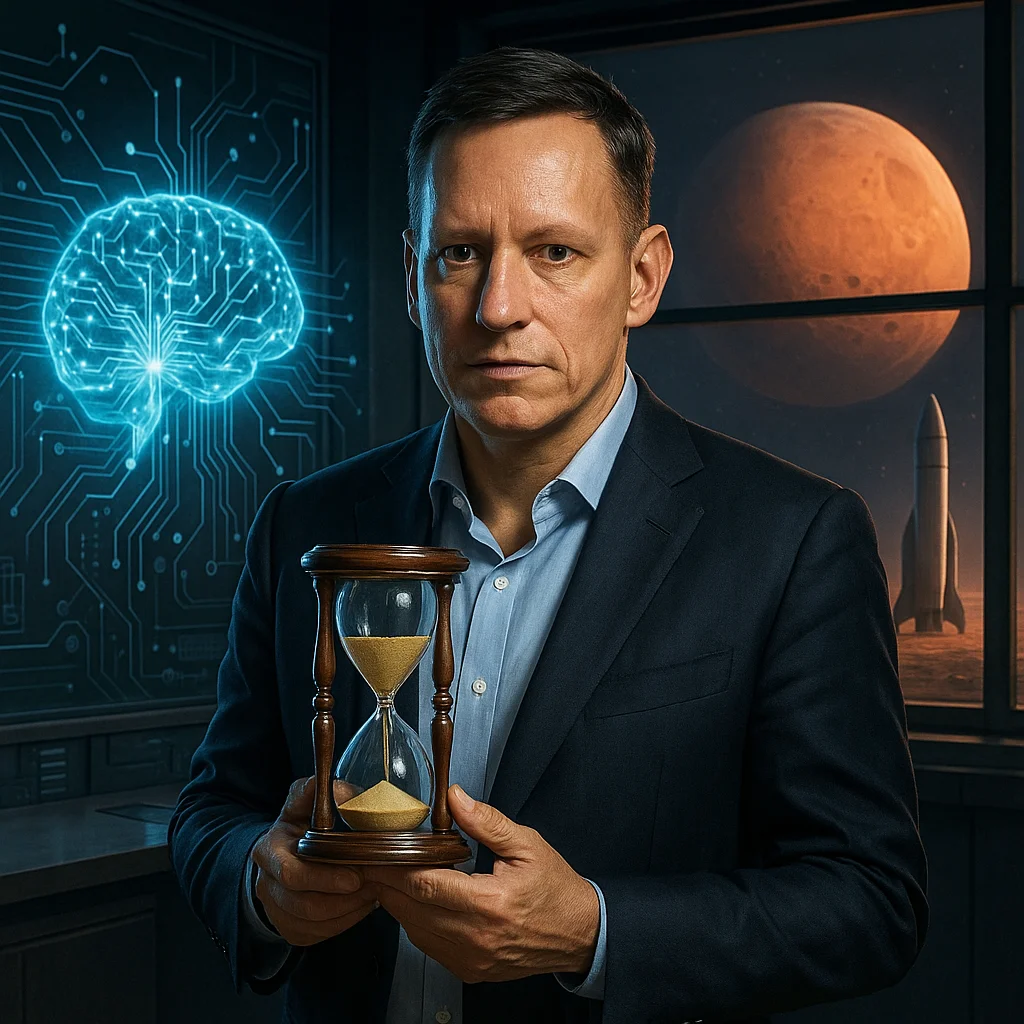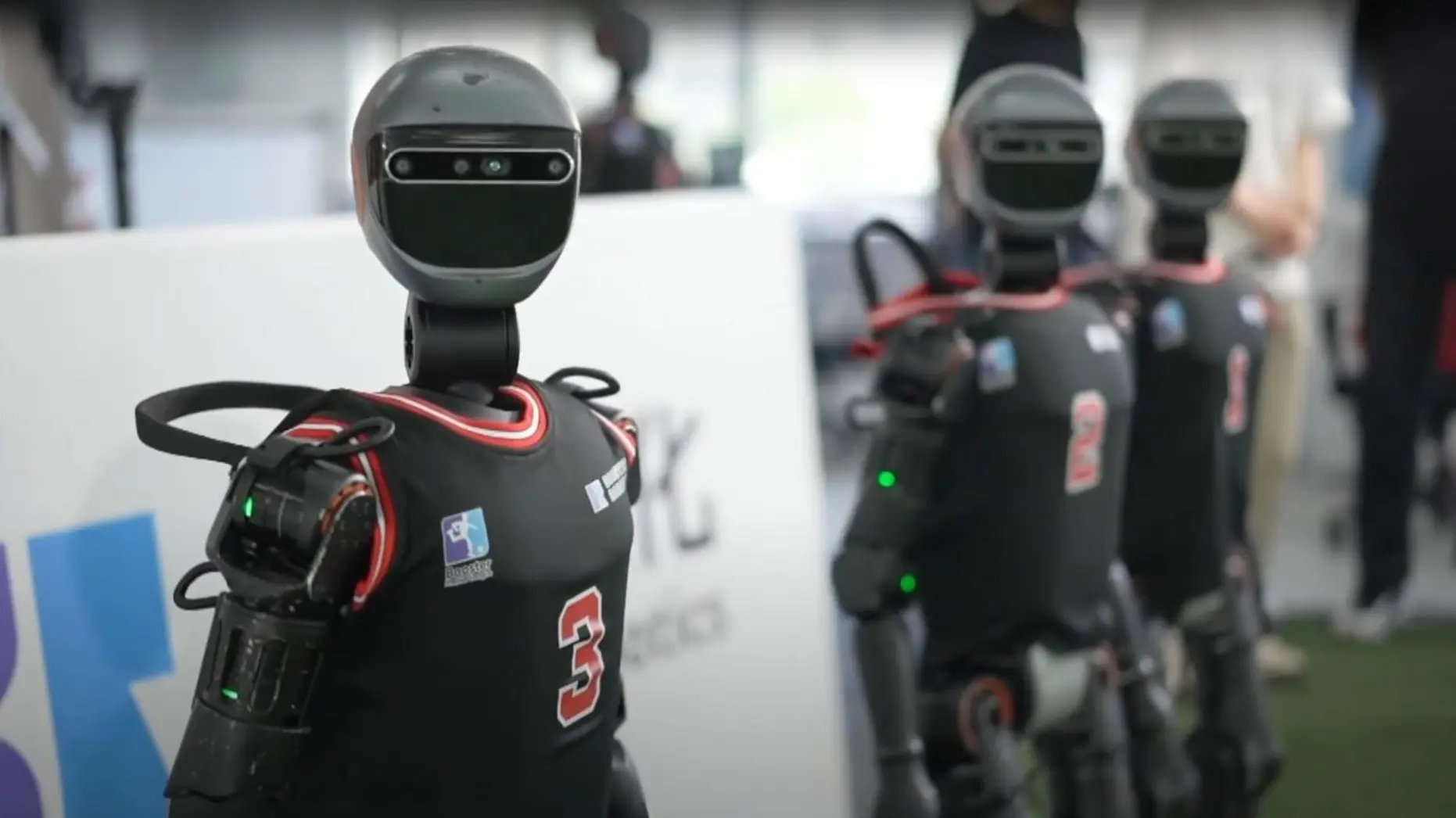Peter Thiel vs. the Antichrist: A tech-right pioneer’s take on AI, Mars ambitions, and the quest for eternal life
03.07.2025
Introduction: Ambition, Crisis and Peter Thiel
Silicon Valley: Bold or Reckless?
Ross Douthat opens by asking whether the tech world is overreaching and which threat looms larger—doomsday or drift. He notes that his guest, venture capitalist Peter Thiel, has bankrolled conservative politics yet is even more famous for his own contrarian ideas on technology, space and longevity.
The Stagnation Thesis—2025 Update
Thiel revisits his 2011 essay “The End of the Future,” which argued that, outside the realm of bits, technological acceleration had largely stalled after 1970. He reaffirms the view: progress has not halted entirely, but the tempo is far slower than during the steam-to-space-age boom. Computing, crypto and now A.I. are notable exceptions, yet they may not be sufficient to restart broad-based dynamism.
How Do We Know We’re Stuck?
Assessing stagnation is tricky, Thiel says. Specialization hides the big picture: few non-experts can judge whether, say, cancer research or quantum computing is advancing meaningfully. The very fact that most breakthroughs are hard to spot from the outside is itself evidence the engine has slowed.
Indicators of Progress—or the Lack Thereof
-
Economic yardstick: Compare a 30-year-old millennial’s living standard with that of a boomer at the same age; the improvement is modest.
-
Scientific pay-off: Academia shows sharply diminishing returns—ever larger budgets deliver ever smaller discoveries.
-
Intuitive test: A child in 2025 watching “Back to the Future” sees that 1985 looks a lot like today, minus smart-phones. By contrast, someone zapped from 1890 to 1970 would find a transformed planet.
Why Growth Still Matters
Thiel argues that middle-class stability depends on each generation expecting its children to fare better. A society that forfeits growth faces institutional breakdown or drifts into some new, probably less free, equilibrium. He concedes that environmental and nuclear fears partly justified slowing down, but insists the cure has become worse than the disease.
Risk Aversion vs. Risk Necessity
From Alzheimer’s therapies to nuclear energy, regulators and researchers shy away from experiments that might fail. Thiel’s prescription: accept much higher levels of risk—ethical, financial and political—because continued caution guarantees decline.
Politics as a Catalyst for Change
Thiel explains why he backed Donald Trump in 2016: not from confidence in concrete reforms but to force an overdue debate about decline. He expected blowback yet thought a shock to the system was required. Today, he sees a larger share of Silicon Valley acknowledging that “something is broken,” even if coherent solutions remain scarce.
Populism and Science Funding
Critics say populists dislike elite science and will slash research budgets. Thiel counters that elite institutions aren’t delivering breakthroughs anyway: “Harvard won’t cure dementia by doing the same thing it’s done for 50 years.” Deregulation and new political coalitions, he hopes, could clear ground for genuine innovation—though he admits the task is messy and sometimes “toxic” for anyone who joins the fight.
The Mars Dream Meets the “Woke A.I.”
Thiel recounts a conversation where an A.I. pioneer told Elon Musk that super-intelligent algorithms would follow colonists to Mars, undercutting the planet-as-escape fantasy. For Thiel, the exchange symbolizes how every technological frontier also raises political questions: you cannot outrun Earth-bound power struggles by changing planets.
Artificial Intelligence: Promise, Limits, Risks
-
Scale of impact: Thiel likens A.I. today to the internet in the late 1990s—big enough to mint great companies and lift productivity modestly, but not necessarily to end stagnation.
-
Superintelligence skepticism: He doubts raw “I.Q. on steroids” alone will unlock cures or factories if cultural and institutional barriers remain. An ultra-smart yet conformist system could simply generate endless mediocre content and deepen malaise.
-
Nevertheless: Given the paucity of other breakthroughs, Thiel would rather embrace A.I.—despite its dangers—than resign himself to permanent stasis.
Immortality, Cryonics and Lost Optimism
Thiel recalls PayPal colleagues holding a “freezing party” in 1999 to sign cryonics contracts—an eccentric expression of boomer-era faith that science could cheat death. Millennials, he laments, no longer believe in radical life extension, a marker of how future-oriented ambition has faded.
Conclusion: The Road Back to the Future
Thiel’s bottom line: modern society must rediscover its tolerance for bold bets—whether that means deregulating nuclear power, fast-tracking biotech trials or building cities on the sea or on Mars. Absent that spirit, political conflict will intensify while technological progress crawls. Better to risk failure chasing new horizons, he argues, than to settle for comfortable stagnation.




